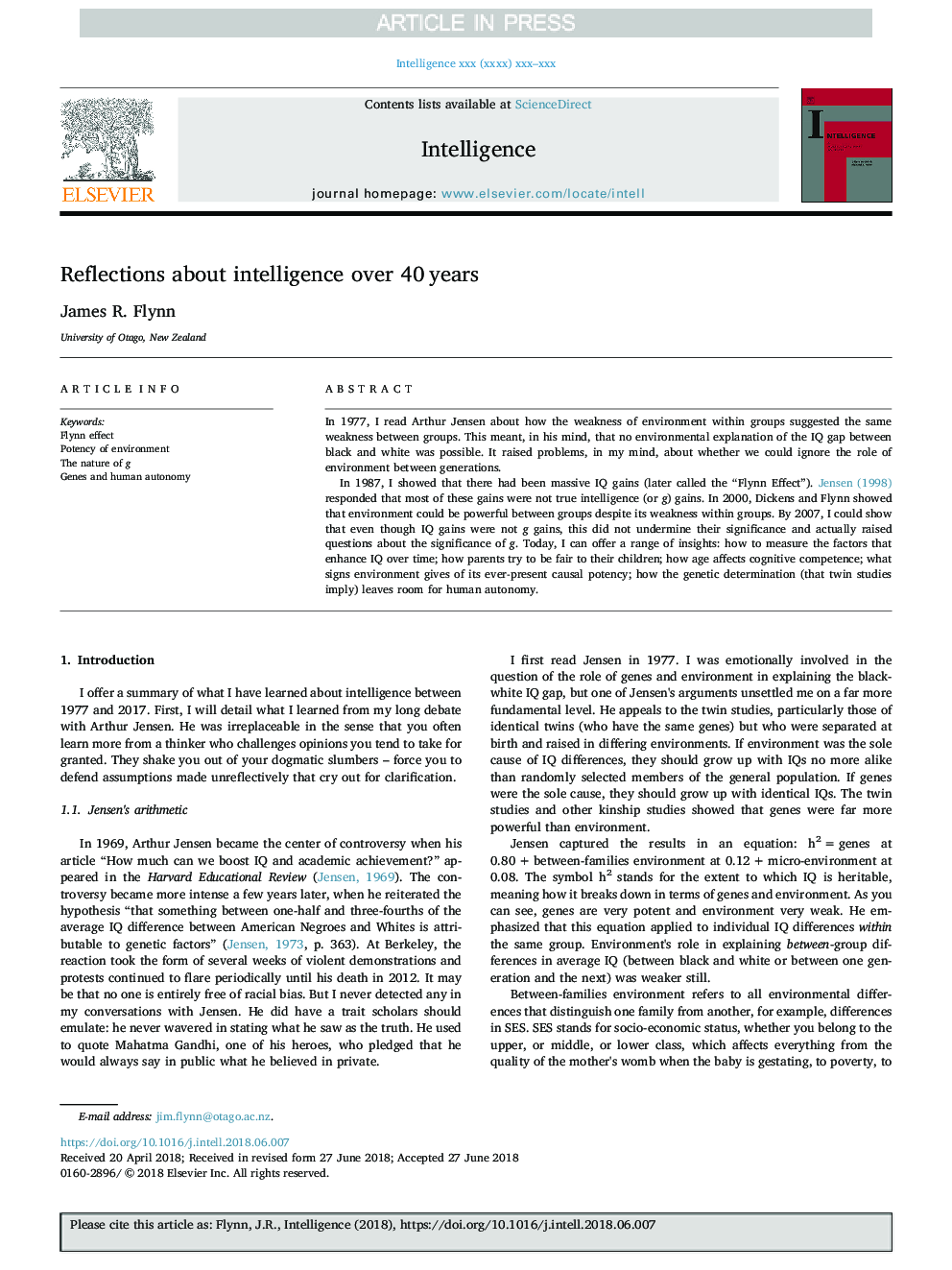| Article ID | Journal | Published Year | Pages | File Type |
|---|---|---|---|---|
| 11004538 | Intelligence | 2018 | 11 Pages |
Abstract
In 1987, I showed that there had been massive IQ gains (later called the “Flynn Effect”). Jensen (1998) responded that most of these gains were not true intelligence (or g) gains. In 2000, Dickens and Flynn showed that environment could be powerful between groups despite its weakness within groups. By 2007, I could show that even though IQ gains were not g gains, this did not undermine their significance and actually raised questions about the significance of g. Today, I can offer a range of insights: how to measure the factors that enhance IQ over time; how parents try to be fair to their children; how age affects cognitive competence; what signs environment gives of its ever-present causal potency; how the genetic determination (that twin studies imply) leaves room for human autonomy.
Keywords
Related Topics
Social Sciences and Humanities
Psychology
Experimental and Cognitive Psychology
Authors
James R. Flynn,
